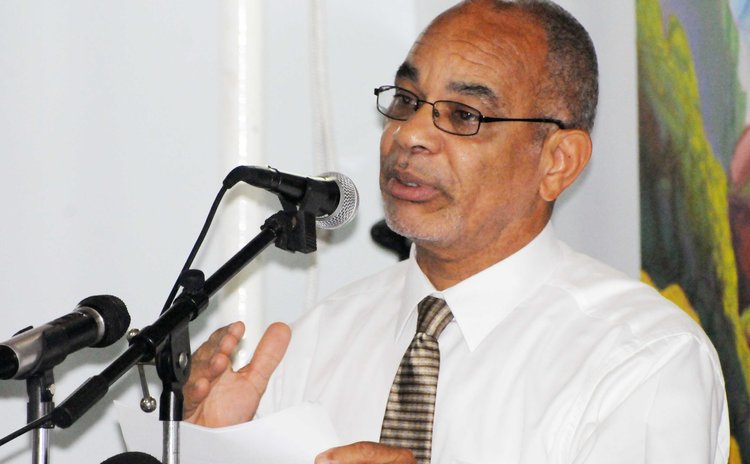DOMLEC shines again

Sometimes less is more. In 2013 DOMLEC, Dominica's sole electricity generating and distributing company, proved that though it took in less money it made more.
"Electricity sales for the financial year ended December 31st, 2013 totalled 89.34GWh, a decrease of 0.9% compared with the previous year's results," DOMLEC's board said in its review of its operations published in its 2013 annual report released last week. "For the most part of 2013, the company recorded negative sales growth despite fuel surcharge throughout the year being 16% lower on average than 2012, indicative of the present prevailing adverse economic conditions".
The company added: "This represents a 15% decrease over last year's results contributing significantly to the reduction in total revenue.
"The 0.9% decrease in electricity sales units yielded less revenue of EC$0.76 million for the year when compared to 2012. Revenue from electricity sales was EC$60.83 million compared to EC$61.59 million the previous year".
That's how DOMLEC sold less; now here's how it made more.
"Profit before tax for the year ended December 31, 2013 stood at EC$12.70 million, compared to EC$11.81 million declared in 2012. Taxes for the year amounted to EC$3.86 million resulting in net profit after taxes of EC$8.84 million, an increase of 7.8%, compared to EC$8.20 million in 2012," the report stated. How did DOMLEC do that? Did the Dominican public pay more per unit of electricity?
According to Collin Cover, the company's general manager, "the fact that we made more profit is not because the price of electricity went up because the fuel surcharge was less so we actually got less money from the public."
Cover told DBS news that DOMLEC has tightened its belt over the last twelve months: "For example we paid one half million dollars less in interest to the bank last year than in 2012.
"So the extra profit that we got is not really from customers; it is from tightening up our own internal practices," he said.
In support of Cover's claim the report stated that direct expenses decreased by EC$8.99 million or 10.7% from 2012 because of lower fuel costs (15.9% lower in 2013) and an increase in electricity generated by hydro.
"This year's total hydro output of 36.71 GWh marks the highest hydro production recorded by the company since 1993 [37.79 GM]. As a consequence, diesel consumption as measured in imperial gallons decreased by 682,862 gallons or 15.7% over 2012. The 0.2% reduction in the average price paid per gallon from EC$11.88 to EC$11.86 this year also contributed to the overall reduction in fuel costs," the report stated.
So, generally, Dominicans used less electricity in 2013 than they did in 2012 as the slow economy took a bigger bite.
"The commercial sector led the fall off in sales with a decline of 2.7% while the domestic sector recorded a modest growth of 0.011%. Together, these two sectors accounted for more than 88% of total sales," the report stated. "On the other hand, the hotel sector recorded positive sales growth of 11.3% due to less self-generation by a major player in the sector and accounted for 1.3% of the year's sales. Sales to the industrial sector recorded a 1.0% growth and this year accounted for 8.8% of the sales, while Street Lighting recorded growth of 4.1% and was 1.9% of the year's sales".
Since DOMLEC continues to be a profitable business, the company said it paid dividends of 20 cents per share to shareholders over the year in review.
In November 2012 Light & Power Holdings Ltd. (LPH) of Barbados announced that it bought controlling shares in (DOMLEC) from WRB Enterprises Inc. of Tampa, Florida. WRB owned 52 percent of DOMLEC, with 21 percent held by Dominica Social Security Scheme and the remainder by other investors.
Light & Power Holdings, an investment company with electricity being its core business, is a majority-owned subsidiary of Emera Inc., an energy and services company based in Halifax, Nova Scotia. LPH has a majority interest in The Barbados Light & Power Company Limited, which has been serving electricity customers in Barbados since 1911, and holds a minority interest in St. Lucia Electricity Services.




